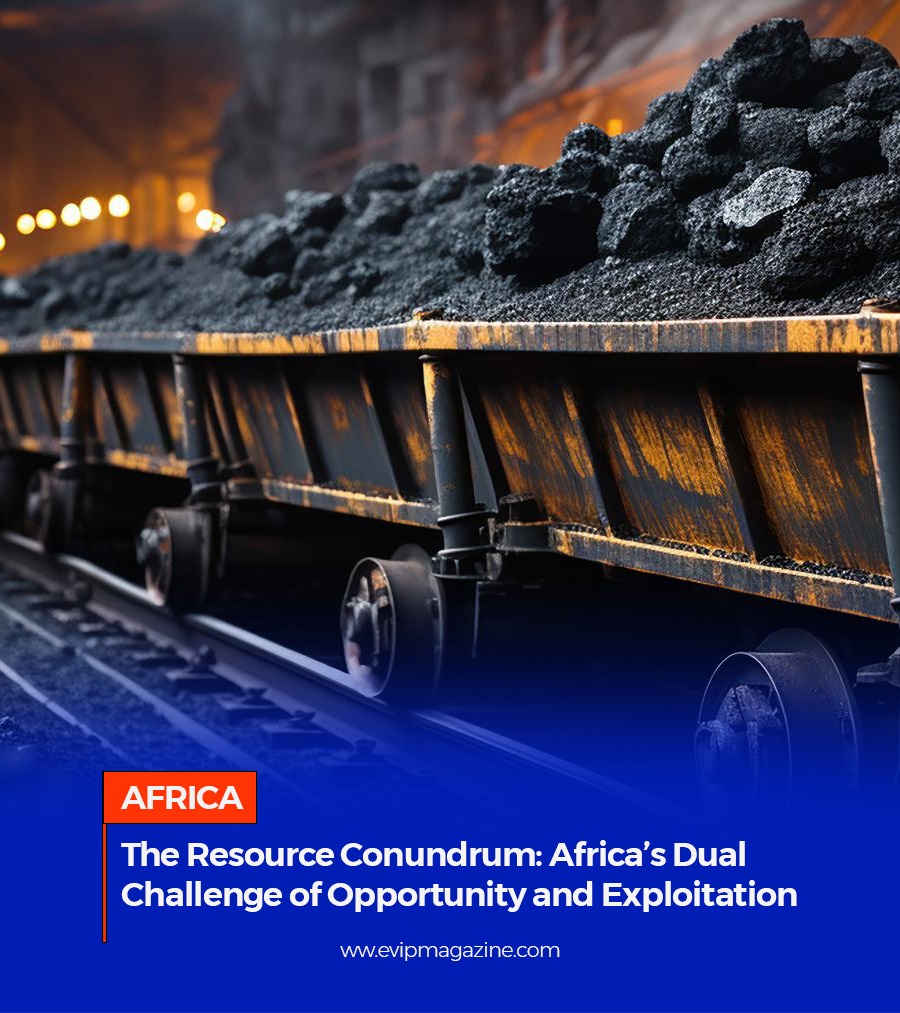
The Resource Conundrum: Africa’s Dual Challenge of Opportunity and Exploitation
Africa is endowed with abundant natural resources vital for the world’s transition to a greener economy. The continent is home to the world’s largest reserves of cobalt and copper, two metals that are essential to the production of lithium-ion batteries that power electric cars, laptops, and smartphones. However, the increasing demand for these resources by the developed economies exacerbates the cycle of exploitation and inequality in a continent locked in the losing battle for effective resource management for growth and development.
The cases of Zambia and the Democratic Republic of the Congo (DRC), two of the world’s leading producers of cobalt and copper, are a reflection of the challenges and opportunities faced by African countries in harnessing their natural wealth for their economic and social progress.
Zambia is the world’s eighth-largest producer of copper, a metal that is widely used for electrical wiring, plumbing, and industrial machinery. Recently, the country also discovered huge deposits of cobalt, a metal crucial for manufacturing batteries and electric vehicles. According to GlobalData, Zambia produced 0.56% less copper in 2022 than in 2021, but its output is expected to rise by 0.29% annually between 2022 and 2026. The country exported about 0.17% more copper in 2022 than in 2021, with China being its main destination. Zambia’s copper and cobalt revenues accounted for about 30% of its gross domestic product (GDP) and 70% of its export earnings in 2022.
Elected in 2021, President Hakainde Hichilema’s government has identified the red mineral as the primary resource to address the nation’s $13 billion debt, owed to China and other creditors. The repayment terms have been extended to 2040, with the current external deficit standing at 70% of GDP. Notably, on October 14, a significant portion of the $6.3 billion bilateral debt was successfully restructured with creditors, as reported by Reuters.
In managing its copper and cobalt resources, Zambia encounters a combination of challenges and opportunities. While the mining sector creates jobs, encourages infrastructure development, and attracts foreign investment, it also poses risks of environmental degradation, corruption, tax evasion, and dependency on unstable commodity prices, potentially hindering long-term development. The Blacksmith Institute, an American environmental research centre, has reported that Chingola province generates a staggering 93,000 tons of industrial waste annually, primarily dumped in the Kafue River. Their investigations have implicated the Konkola copper mine as the main polluter, posing severe health risks to both humans and animals and increasing the likelihood of cholera outbreaks if not addressed promptly.
Zambia has taken some steps to address these issues. So far, it has tried to diversify its economy, improve its governance, and negotiate better deals with mining companies. For instance, KoBold Metals, an artificial intelligence start-up, backed by billionaires like Bill Gates and Jeff Bezos, has invested $150 million to develop the Mingomba copper-cobalt mine in Zambia, which experts claim is the world’s largest untapped deposit of the red metal. Furthermore, the country has revised its mining tax regime, increased its stake in some mining projects, and launched a strategic plan to promote local value addition and industrialization.
The Democratic Republic of Congo (DRC) is another nation grappling with comparable difficulties. The nation possesses huge reserves of copper, gold, diamonds, coltan, and other minerals in addition to being the world’s largest producer of cobalt. According to the World Bank, the DRC produced around 100,000 metric tons of cobalt in 2022, accounting for almost 70% of the global supply. The majority of the cobalt exported by the DRC in 2022, which totalled about 90,000 metric tons, went to China. In 2022, the DRC’s GDP and export earnings were impacted by cobalt and copper revenues, which accounted for roughly 20% and 40%, respectively.
The Democratic Republic of Congo (DRC) finds itself at a crossroads of opportunities and challenges in managing its cobalt and copper resources. While the mining sector has brought economic growth, technological advancements, and regional integration, it has also exacerbated human rights violations, armed conflicts, and forced evictions. In October 2023, 6.9 million Congolese were displaced due to violence, with about 400 households directly affected by cobalt mining-related evictions.
Despite being rich in valuable minerals like copper, gold, coltan, cobalt, and diamonds, and having the second-largest forest after the Amazon, the DRC remains one of the world’s poorest countries. Approximately 5.7 million people are displaced within the country, and a quarter of the population struggles to meet their basic food needs.
To address these issues, the DRC is trying to reform its mining code, strengthen its institutions, and cooperate with regional and international partners. For example, the country has increased its royalties, taxes, and state participation in mining projects, established a national agency to monitor and regulate the sector, and joined the Extractive Industries Transparency Initiative (EITI) to improve its accountability and transparency.
Conclusion: Africa’s abundant natural resources present a dual opportunity: driving human and economic development on the continent and contributing to the global green energy transition. Unfortunately, many African countries struggle to manage their resources effectively for sustainable development.
For Africa to harness its natural wealth, it needs to prioritize good governance, encourage domestic value addition, and promote inclusive and sustainable growth. This will ensure that the continent benefits from its resources while also contributing to the global green energy transition.
Furthermore, the international community must hold companies such as Apple, BMW, Google, Samsung, and Volkswagen accountable for their reliance on cobalt. These companies should expand their corporate social responsibility initiatives to include improving conditions in mining communities.
